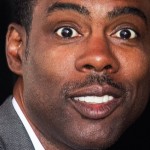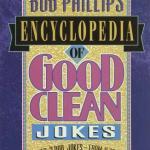Few writers have the capacity that David Dark has, to orchestrate familiar stories from literature and popular culture as part of engaging theological discourse. In his new book The Sacredness of Questioning Everything, David emphasizes that questioning, and more broadly that conversation, is an essential practice in the life of the Church. Indeed, conversation is fundamental to our identity as the community of God’s people, relating to one another and to God. It is a lost art that must be recovered and Dark skillfully navigates the complexity of life in conversation and we — who are seeking to embody the slow and attentive way of Jesus — would do well to follow his lead.
(This review originally appeared in The Englewood Review of Books, 22 May 2009)
“Rehabilitation, Redemption
and Ultimately Resurrection”
A Review of
The Sacredness of Questioning Everything.
David Dark.
Paperback: Zondervan, 2009.
Buy now: [ Amazon ] [ Kindle ]
Reviewed by Joshua Neds-Fox.
Limited time! Click to Download a Free Audiobook edition!!!
 In attempting to reduce a book-length testimony to four or five paragraphs, there’s always the risk of perverting the author’s original intent (if, of course, he/she has something intentional to say). When I say ‘perverting,’ I mean it in the sense that David Dark defines it in THE SACREDNESS OF QUESTIONING EVERYTHING: the object is “reduced to a thing… dispensed with, taken care of, filed away.” “Perversion is pigeonholing,” he says, and I sincerely hope not to do this to Dark’s message, since I’m convinced he actually does have something to tell us.
In attempting to reduce a book-length testimony to four or five paragraphs, there’s always the risk of perverting the author’s original intent (if, of course, he/she has something intentional to say). When I say ‘perverting,’ I mean it in the sense that David Dark defines it in THE SACREDNESS OF QUESTIONING EVERYTHING: the object is “reduced to a thing… dispensed with, taken care of, filed away.” “Perversion is pigeonholing,” he says, and I sincerely hope not to do this to Dark’s message, since I’m convinced he actually does have something to tell us.
In SACREDNESS, Dark champions the power — and the spiritual necessity — of the open mind. Asking questions of our convictions, assumptions, perversions, religions, is the only way to let the light and air into them. “There is a crack in everything. That’s how the light gets in,” he maintains, using Leonard Cohen’s words. Questioning our God(s), our government, our eschatology, our language or our lusts, opens them to the possibility of rehabilitation, redemption and ultimately resurrection.
His chief target is the concept of God as an angry, vengeful tyrant, an abomination who punishes the slightest doubt or faithlessness with a swift and terrible consequence, a false God he names Uncle Ben, or (via William Blake) “Nobodaddy.” Dark confesses to slipping into this conception of God every so often, and he marshals all his courage and skill to outline the means to counter this concept with truth and grace. This involves crossing carefully drawn boundaries to tip over some of the very sacred cows of the modern evangelical tradition. Particularly challenging are Dark’s explorations into postmodernism and moral relativism, and what those ways of thinking might have to teach us about the value of continuing to search for a truer witness. “Freed from the burden of cognitive certainty, the postmodern mind is determined not to fall for transcendental pretensions or any idolatry of concepts.” (125) Dark acknowledges that, though we must act on what we believe to be true and right, we must always remember that we may be wrong, and we must be ready at a moment’s notice to rehabilitate our actions if it turns out we are wrong. In what might be the mission statement of this work, Dark writes:
I want to announce the good news that God, the God in whom I believe, never calls anyone to playact or pretend or silence their concerns about what’s true. I want to break through mind-forged manacles that render us incapable of seeing truthfully for fear we might let in the wrong information. God is not made angry and insecure by an archeological dig, a scientific discovery, an ancient manuscript, or a good film about homosexual cowboys. Nor would I imagine God to be made angry or insecure by people with honest doubts concerning his existence. God is not counting on us to keep ourselves stupid, closed off to the complexity of the world we’re in…
Damn this demonic Uncle Ben business. Damn it all to hell. May we bear it no more…” (143)
Dark is also — and in some ways primarily — concerned with language here. “Semantics might be all there is to talk about,” (130) he writes in a chapter devoted specifically to the subject. But everywhere in SACREDNESS, he asserts the power of language to redeem humans and humanity from the darkness around and inside us. His principle agent is what he at various times calls cosmic plainspeak, the apocalyptic, or the Get Fresh Flow, but most often simply “the poetic.” “There’s an ancient conversation going on in a variety of forms, and there are so many ways of naming it.” (109) What he means by these names is a type of witness that calls us out, wakes us up, makes us aware, “demanding a reappraisal of whatever [we] thought [we] knew about life and how to live it before.” (32). He reappraises freely, redefining words (‘religious,’ ‘apocalyptic,’ ‘pervert,’ ‘poetic’) when their usual meanings don’t accurately reflect the truth.
Dark’s peculiar (meaning: uniquely his) obsession is to find this witness in the streams of what we’d otherwise call ‘secular’ culture, and he indulges liberally throughout this book. He’s sly, dropping slightly altered references to lyrics, lines, poems and snatches of dialogue all over the place (starting with the memorable Prince tidbit that opens the book), trying to trick the reader into stopping for once to think — really think — about what’s being said. And when the spirit moves him, he’ll dally over a particular cultural artifact — ‘The Colbert Report,’ an Arcade Fire song, ‘The Office,’ Cormac McCarthy’s The Road — turning it over and over to wring the unlikely sacred witness out of it. He pretty much begs us to expose ourselves to this witness, even and especially when it’s unusual or uncomfortable for us to do so. The unacceptable risk of not doing so is a life lived under the influence of Uncle Ben and his minions.
Let’s take a page from Dark’s book and attempt an application of his redemptive, subversive methods: SACREDNESS is a work of exceedingly conservative religion. By conservative I mean having as its business the preservation and defense of the core — in this case, the core of the gospel and the Imago Dei, the image of God in every person. And by religion I mean the ‘calling out,’ the prophetic word that seeks to wake sleepers from the dead. This conservation is difficult work in the 21st century, where children are “bred to pledge their liege away without question.” (193) That Dark can continue to tilt at this windmill and still describe himself as a ‘mandatory agnostic’ — committed to the proposition that he doesn’t and can’t know everything — suggests that there may be something in his unusual brand of agnosticism worth looking into.
——
Joshua Neds-Fox is variously a husband / father / web librarian / reader of books in the vicinity of Detroit, Michigan.
http://neds-fox.com/joshua/















